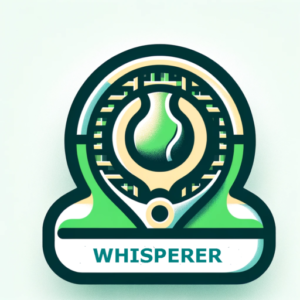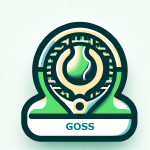How Do You Stay Mentally Strong in Matches?
Tennis is as much a mental battle as it is a physical one. Your attitude—how you handle adversity, pressure, and momentum shifts—can either propel you to victory or hold you back. But in the end, it’s you who decides the outcome, not your emotions. The players who succeed are the ones who learn to control their mindset, stay composed, and compete with clarity.
If you want to play your best under any circumstances, mastering your attitude is essential. Here’s how you can take charge of your mental game and turn your mindset into your biggest weapon.
The Attitude Factor in Tennis
Matches aren’t won by talent alone. How you respond to challenges, handle mistakes, and manage pressure plays a major role in determining the final result.
The best players don’t let frustration, self-doubt, or negativity dictate their performance. Instead, they train their minds just as they train their strokes—building resilience, focus, and confidence so that they control their attitude rather than letting their attitude control them.
Respect Your Emotions, But Don’t Let Them Control You
“Respect your emotions, but don’t let them define your game.”
Emotions are natural, but they don’t have to dictate your actions. Great players acknowledge frustration, nerves, or disappointment, but they don’t dwell on them. Instead, they shift their focus to solutions rather than problems.
- Accept that frustration will happen, but don’t engage with it.
- Learn to reset quickly after mistakes.
- Stay present—focus on the next point, not the last one.
Pro Tip: Use deep breathing exercises to calm your mind and visualization to reinforce confidence under pressure.
Play with a Positive and Focused Mindset
“You don’t have to feel good to play well, but you do have to stay focused.”
Your attitude affects your shot selection, footwork, and decision-making. When you let negativity take over, your footwork slows, racket preparation lags, and you start playing defensively.
To keep your focus sharp:
- Use positive self-talk – Replace “I always miss that shot” with “Next time, I’ll adjust.”
- Keep your body language strong – Walk confidently, even after losing a point.
- Commit to every shot – Second-guessing leads to hesitation, which leads to errors.
Key Takeaway: Confidence comes from action. Keep moving forward, point by point.
Control What You Can, Let Go of What You Can’t
Tennis is unpredictable. Bad calls, net cords, tricky opponents—many things are outside your control. The key is to focus on what you can control:
| OUT OF YOUR CONTROL |
IN YOUR CONTROL |
| Opponent’s game |
Your shot selection |
| Crowd noise |
Your breathing and focus |
| Line calls |
Your reaction and next shot |
| Match conditions |
Your footwork and energy |
The players who succeed aren’t those who avoid problems but those who handle them with composure.
Tip: Frustration is wasted energy. Channel it into determination instead.
Master Your Body Language and Presence
How you carry yourself on the court affects not only your own mindset but also your opponent’s perception of you.
- Stand tall, even after errors.
- Avoid slumping, shaking your head, or showing frustration.
- Take deep, controlled breaths between points.
Your opponent is watching for signs of weakness. Show confidence, and you’ll have an edge even before the next point starts.
Adjust Your Strategy Instead of Complaining
If something isn’t working, adapt instead of reacting emotionally.
- Struggling with consistency? Add more margin to your shots.
- Opponent dominating with power? Mix in slices and change the pace.
- Feeling rushed? Use deep, high balls to slow the game down.
The players who adjust are the ones who win. Excuses don’t change the score—smart adjustments do.
Stay Mentally Tough When It Matters Most
The difference between winning and losing often comes down to who handles pressure better. Here’s how to train mental toughness:
- Pre-shot routines keep you focused and prevent rushing.
- Positive self-talk helps you stay confident under pressure.
- Deep breathing calms your nerves before big points.
- Focus on your strengths instead of your opponent’s game.
Key Takeaway: Tennis is about problem-solving. Stay engaged, stay adaptable, and keep believing in yourself.
Final Takeaways: How to Control Your Attitude and Win More Matches
- Accept that emotions will come and go—focus on staying composed.
- Control your body language and mindset, no matter the score.
- Stay solution-oriented—if something isn’t working, adjust.
- Confidence comes from action—keep moving forward.
- Stay mentally tough in pressure moments—trust your preparation.
You Decide the Match, Not Your Attitude
Your attitude doesn’t define your match unless you let it. The best players don’t play well because they always feel great—they play well because they know how to stay composed, problem-solve, and compete with a clear mind.
Next time you step on the court, remember: You decide the match. Not your emotions. Not your frustrations.
It’s about You!



